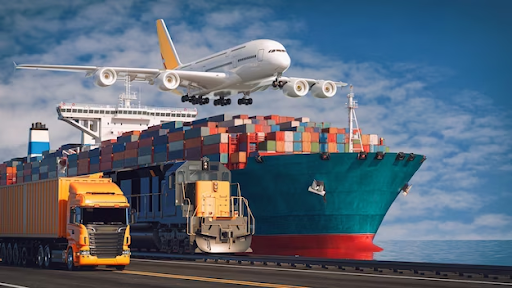Behind the Scenes: Exploring the Vital Role of Freight Shipping Companies in Global Trade

In the intricate dance of global trade, freight shipping companies perform a behind-the-scenes role that is both foundational and transformative.
These companies, often unseen by the end consumer, play a vital role in facilitating the movement of goods across borders and oceans.
In this exploration, we delve into the essential functions of freight shipping companies, understanding the complexities, challenges, and innovations that define their crucial contribution to the global economy.
The Foundation of Global Trade
1. Connecting Continents:
Freight shipping companies serve as the linchpin connecting continents and nations. They enable the transportation of goods from manufacturing hubs to consumer markets, fostering international trade relationships that drive economic growth.
2. Essential Link in the Supply Chain:
Within the broader supply chain, freight shipping companies form a critical link between manufacturers, suppliers, wholesalers, and retailers.
Their ability to efficiently transport goods across vast distances ensures a steady and reliable flow of products to meet consumer demand.
3. Enabling Specialized Trade:
The diverse nature of goods traded globally requires specialized shipping solutions. Freight companies accommodate this diversity by offering services tailored to the unique needs of various industries, whether it be perishable goods, hazardous materials, or oversized cargo.
The Complexities of Freight Shipping
1. Navigating Regulations and Compliance:
International trade involves navigating a labyrinth of regulations, tariffs, and compliance requirements. Freight companies are adept at understanding and adhering to these complexities, ensuring that shipments comply with the laws of both the exporting and importing countries.
2. Customs Clearance:
Customs clearance is a pivotal stage in the freight shipping process. Freight companies work closely with customs authorities to ensure the efficient processing of shipments, including the accurate documentation of goods and adherence to import/export regulations.
3. Mode of Transportation:
Freight companies offer a range of transportation modes to suit the diverse needs of shippers. This includes ocean freight for large cargo shipments, air freight for expedited deliveries, and land freight for regional transportation.
The choice of mode depends on factors such as speed, cost, and the nature of the goods being transported.
4. Last-Mile Delivery Challenges:
While freight shipping companies excel at transporting goods across oceans and borders, the last mile presents unique challenges.
Coordinating the final leg of delivery to the end consumer requires addressing issues such as traffic congestion, urban planning, and the increasing demand for fast and reliable deliveries.
Innovations Transforming Freight Shipping
1. Digitalization and IoT:
The digital revolution has permeated the freight shipping industry, ushering in an era of increased connectivity and visibility. Internet of Things (IoT) devices provide real-time tracking and monitoring of shipments, enhancing transparency and responsiveness.
2. Blockchain for Supply Chain Transparency:
Blockchain technology is being leveraged to create secure and transparent supply chains. Freight companies are exploring blockchain to streamline documentation, reduce fraud, and provide stakeholders with an immutable record of the entire shipping process.
3. Autonomous Vehicles:
The development of autonomous vehicles, including trucks and drones, is poised to revolutionize freight transportation. These technologies offer the potential for increased efficiency, reduced labor costs, and improved safety in the shipping process.
4. Green Logistics:
Sustainability is a growing concern in the freight shipping industry. Companies are adopting eco-friendly practices, such as the use of alternative fuels, energy-efficient transportation, and the optimization of routes to minimize environmental impact.
Challenges in Freight Shipping
1. Port Congestion:
The increasing volume of global trade has led to congestion at major ports. Delays in unloading and loading cargo ships can disrupt supply chains and result in additional costs for shippers.
2. Supply Chain Disruptions:
Events such as natural disasters, geopolitical tensions, or public health crises can cause significant disruptions to global supply chains. Freight companies must adapt quickly to changing circumstances to maintain the flow of goods.
3. Infrastructure Limitations:
Infrastructure limitations, especially in developing regions, can hinder the efficiency of freight transportation. Inadequate roads, ports, and customs facilities may contribute to delays and increased costs.
4. Rising Fuel Costs:
The volatility of fuel prices directly impacts the operating costs of freight companies. Fluctuations in fuel prices can lead to increased transportation costs, affecting the overall economics of global trade.
Case Study: Maersk Line
Maersk Line, a global leader in container shipping, provides a compelling case study of the vital role of freight shipping companies in global trade.
Operating a fleet of container vessels, Maersk Line facilitates the movement of goods across the world’s oceans.
The company’s extensive network, efficient operations, and commitment to sustainability highlight the multifaceted nature of modern freight shipping.
Maersk Line’s adoption of digital technologies, including IoT devices and blockchain, enhances visibility and transparency in the supply chain.
The company’s focus on green initiatives, such as utilizing biofuels and exploring carbon-neutral vessels, reflects a commitment to sustainable shipping practices.
The Future of Freight Shipping
1. Data-Driven Decision-Making:
The increasing availability of data will drive data-driven decision-making in the freight shipping industry. Advanced analytics and machine learning algorithms will enable companies to optimize routes, predict demand, and enhance overall efficiency.
2. Collaborative Platforms:
Collaborative platforms that connect various stakeholders in the supply chain will become more prevalent. These platforms facilitate communication, coordination, and real-time information sharing, streamlining the entire shipping process.
3. Enhanced Last-Mile Delivery:
Innovations in last-mile delivery, including the use of autonomous vehicles and drones, will continue to evolve. Companies will seek to address the challenges of urban congestion and meet the growing demand for faster and more flexible delivery options.
4. Sustainable Practices:
The emphasis on sustainability will intensify, with freight companies adopting greener practices and exploring alternative fuels. The pursuit of carbon-neutral shipping and eco-friendly logistics solutions will be at the forefront of industry developments.
Conclusion
Freight shipping companies are the unsung heroes of global trade, working tirelessly behind the scenes to ensure the seamless movement of goods across borders. Their role in navigating regulatory complexities, overcoming logistical challenges, and embracing technological innovations is central to the functioning of the modern supply chain.
As the freight shipping industry continues to evolve, businesses, consumers, and the global economy at large will benefit from increased efficiency, sustainability, and connectivity. The vital role of freight shipping companies in global trade is not only a testament to their adaptability but also a reflection of their integral contribution to the interconnected world of commerce.



